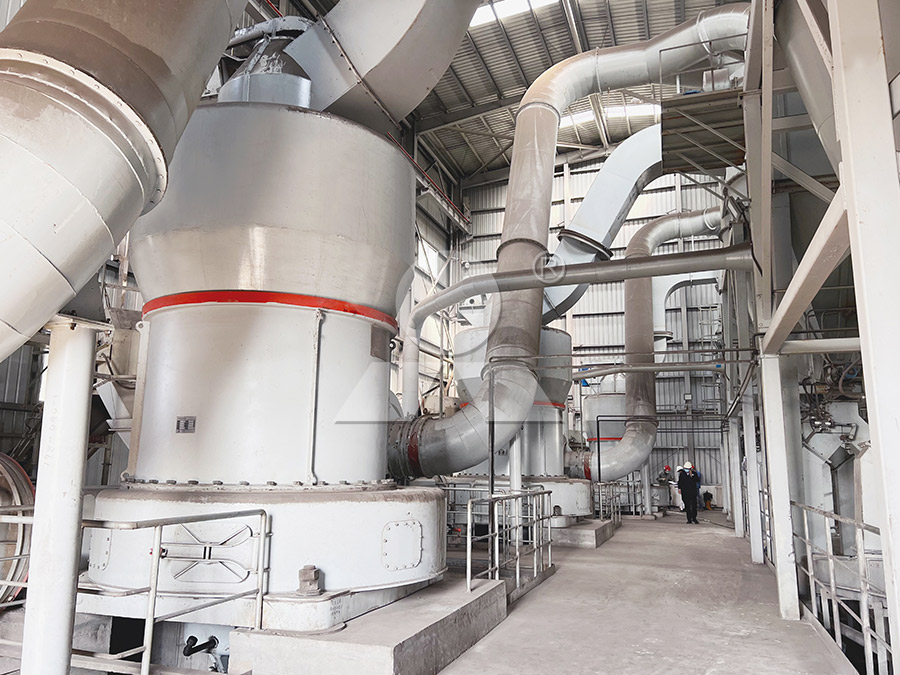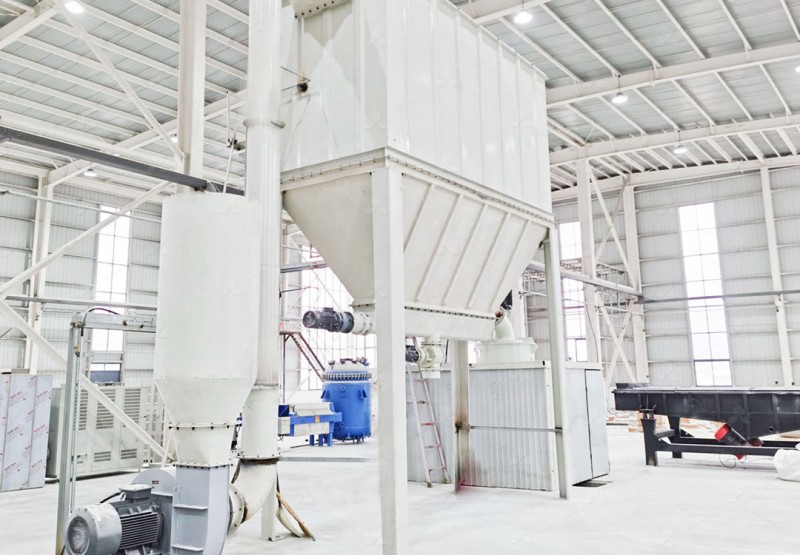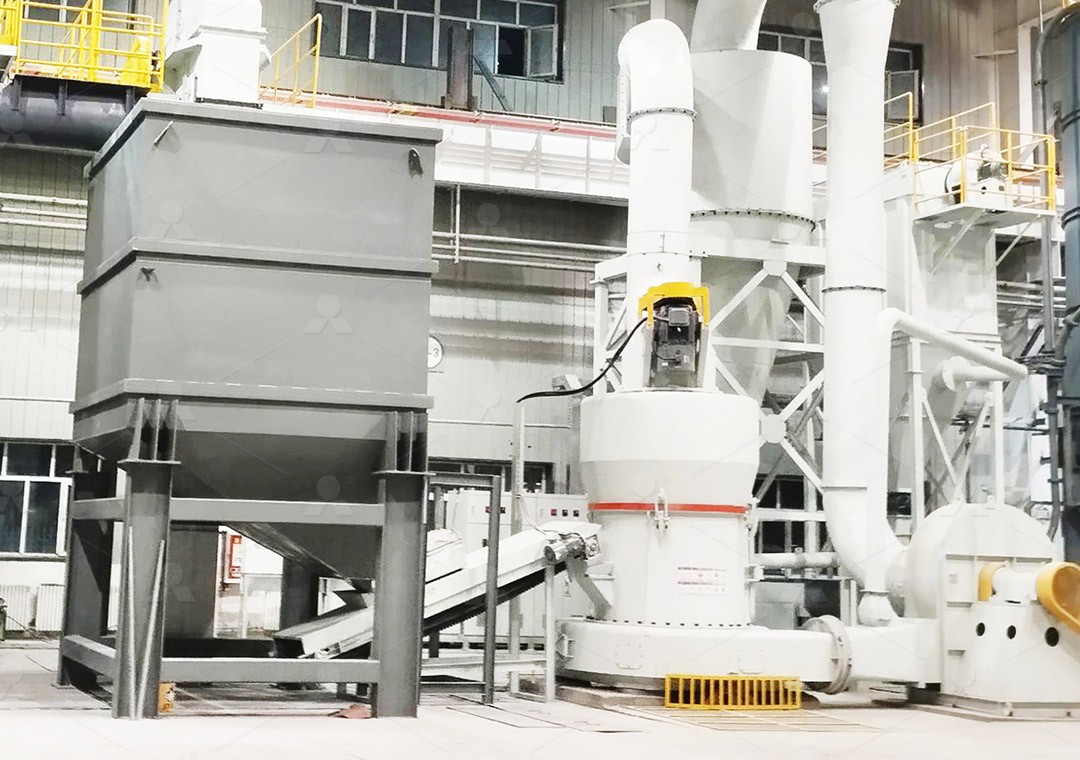325 Mesh Talc Powder Grinding Plant Price: A Comprehensive Guide
We provide a wide range of mills — including Raymond mill, trapezoidal mill, vertical mill, ultrafine mill, and ball mill, obtained ISO9001 international quality certification, EU CE certification, and Customs Union CU-TR certification. Suitable for processing minerals such as limestone, phosphate, quicklime, kaolin, talc, barite, bentonite, calcium carbonate, dolomite, coal, gypsum, clay, carbon black, slag, cement raw materials, cement clinker, and more.
The discharge range of these mills can be adjusted to meet specific processing needs, typically from 80-400 mesh, 600-3250 mesh, and can achieve the finest particle size of up to 6000 mesh(D50).
If you are looking for a reliable grinding solution to turn stone or minerals into fine powder, please feel free to contact our online customer service.
Understanding the Economics of 325 Mesh Talc Powder Production
When considering the establishment of a 325 mesh talc powder grinding plant, one of the most critical factors that determines project viability is the overall investment cost. The price isn’t merely about purchasing equipment—it encompasses operational efficiency, energy consumption, maintenance requirements, and long-term reliability. For talc processing operations targeting the cosmetics, paint, pharmaceutical, and plastics industries, achieving consistent 325 mesh fineness while controlling costs is paramount to competitive advantage.
The traditional approach to talc grinding has often involved multiple processing stages and older mill technologies that consume excessive energy and require frequent maintenance. However, technological advancements have revolutionized this sector, offering solutions that deliver superior performance at lower operational costs.

Key Factors Influencing Grinding Plant Pricing
Several elements significantly impact the total cost of ownership for a talc grinding facility. Production capacity requirements dictate equipment size and power consumption—a 5 TPH plant has vastly different investment needs compared to a 25 TPH operation. Energy efficiency represents another crucial consideration, as power consumption can account for up to 40% of operational expenses in traditional grinding systems.
Maintenance costs and downtime represent hidden expenses that many operators underestimate. Equipment requiring frequent shutdowns for bearing replacements or screw tightening can dramatically reduce overall profitability. Environmental compliance costs have also become increasingly important, with dust collection and noise reduction systems adding to both initial investment and ongoing operational expenses.
Advanced Grinding Solutions for Optimal Performance
For operations targeting 325 mesh talc powder production, our MW Ultrafine Grinding Mill presents an exceptional balance of performance and economy. With an input size capability of 0-20 mm and capacity ranging from 0.5-25 TPH, this system is specifically engineered for customers requiring ultra-fine powder production. The MW series incorporates several proprietary technologies that directly address the cost challenges of talc processing.
The innovative design eliminates rolling bearings and screws within the grinding chamber, preventing common failure points that plague conventional mills. This engineering decision translates to significantly reduced maintenance costs and eliminates machine damage caused by loose screws. Furthermore, the external lubrication system enables maintenance without production stoppages, supporting continuous 24-hour operation that maximizes ROI.

Energy Efficiency: The Hidden Cost Saver
Perhaps the most compelling economic advantage of modern grinding systems lies in their energy optimization. The MW Ultrafine Grinding Mill demonstrates remarkable efficiency, consuming only 30% of the energy required by jet grinding mills for equivalent output. This is achieved through newly designed grinding curves of the grinding roller and ring, which enhance grinding efficiency while reducing power requirements.
The cage-type powder selector, incorporating German technology, provides precise powder separation with adjustable fineness between 325-2500 meshes. This flexibility allows operators to fine-tune production based on market demands without requiring additional equipment investments.
Environmental Compliance Without Compromise
Modern grinding operations cannot overlook environmental considerations. The integrated pulse dust collector and muffler system in the MW grinding mill ensures compliance with stringent environmental standards while maintaining operational efficiency. The complete milling system operates without dust pollution, and noise reduction features create a better working environment while meeting regulatory requirements.
For operations requiring different configurations, our LUM Ultrafine Vertical Grinding Mill offers another sophisticated solution with input size of 0-10 mm and capacity of 5-18 TPH. This system incorporates the latest Taiwanese grinding roller technology and German powder separating technology, providing exceptional efficiency for specialized applications.

Long-Term Value Beyond Initial Price
When evaluating grinding plant prices, astute operators consider the total cost of ownership rather than merely the initial equipment investment. Systems designed with digitalized processing and high-precision manufacturing, like our MW and LUM series, deliver consistent performance over extended operational lifetimes. The availability of genuine spare parts and comprehensive technical support further ensures worry-free operation, minimizing unexpected downtime and maintenance expenses.
The strategic selection of grinding technology ultimately determines not just the initial plant price, but the long-term profitability of talc processing operations. By investing in advanced systems that optimize energy consumption, reduce maintenance requirements, and ensure environmental compliance, operators can achieve superior returns while producing high-quality 325 mesh talc powder that meets exacting market standards.
Frequently Asked Questions
What is the typical price range for a complete 325 mesh talc grinding plant?
Plant costs vary significantly based on capacity requirements, but for a medium-scale operation (5-10 TPH), complete systems typically range from $200,000 to $500,000. Specific pricing depends on configuration, automation level, and ancillary equipment.
How does the MW Ultrafine Grinding Mill achieve lower energy consumption?
The MW series incorporates optimized grinding curves and an efficient cage-type powder selector that reduces energy consumption by up to 70% compared to traditional jet mills while maintaining production capacity.
What maintenance advantages does the bearing-free design provide?
By eliminating rolling bearings and screws in the grinding chamber, the MW mill prevents common failure points, reduces maintenance frequency by approximately 40%, and enables continuous 24-hour operation without lubrication-related shutdowns.
Can the same equipment produce different talc powder fineness levels?
Yes, the MW Ultrafine Grinding Mill offers adjustable fineness between 325-2500 meshes, allowing operators to switch between different product specifications without equipment modification.
What environmental features are included in modern grinding plants?
Contemporary systems like the MW mill incorporate pulse dust collectors, mufflers, and negative pressure operation to eliminate dust pollution and reduce noise, ensuring compliance with international environmental standards.
